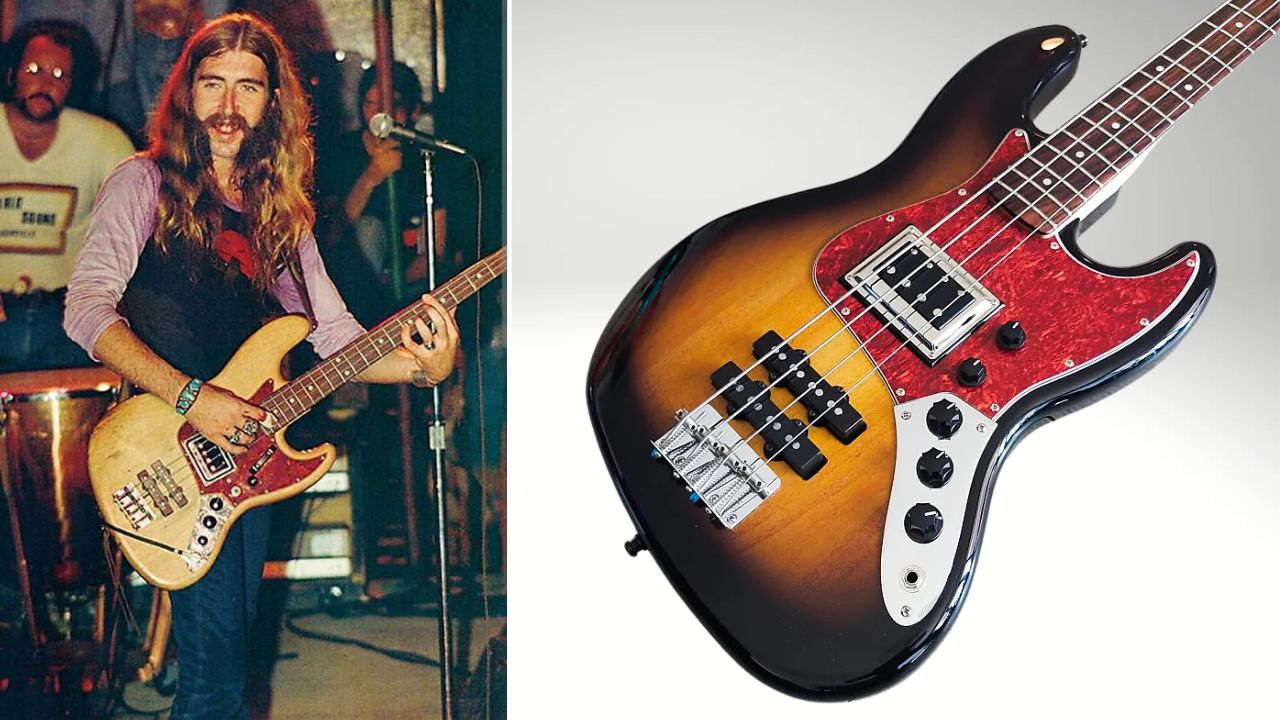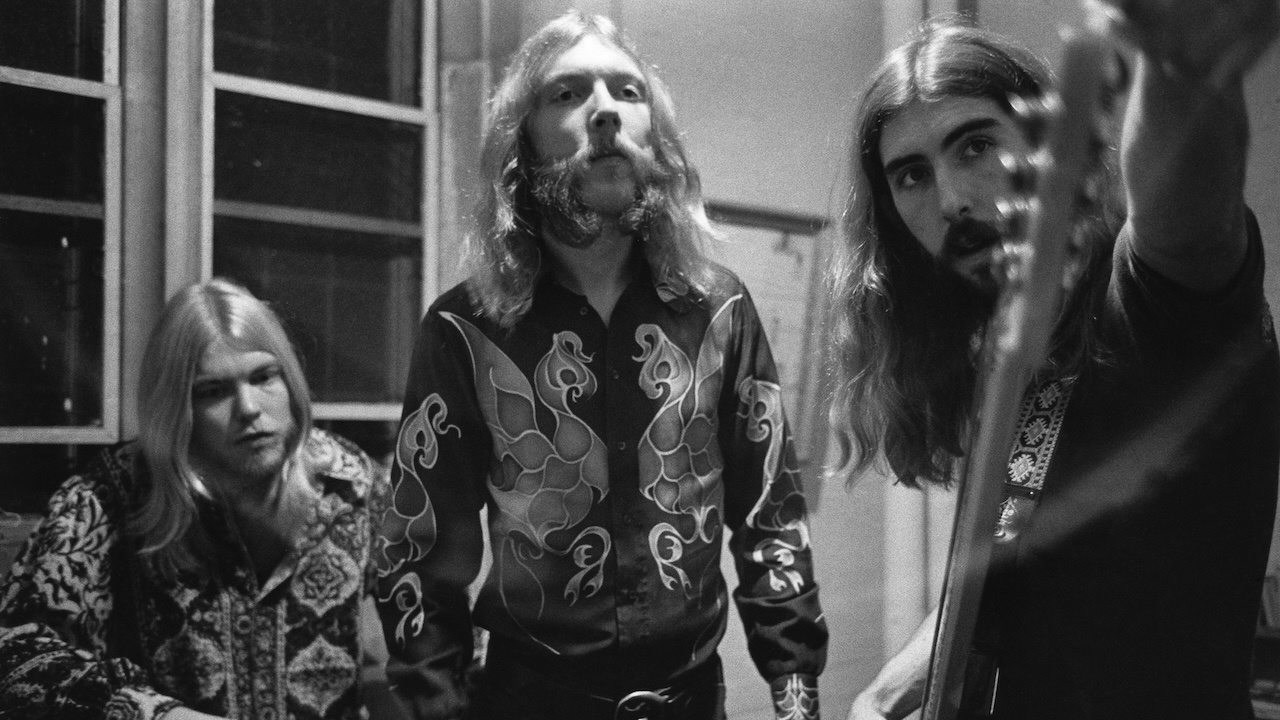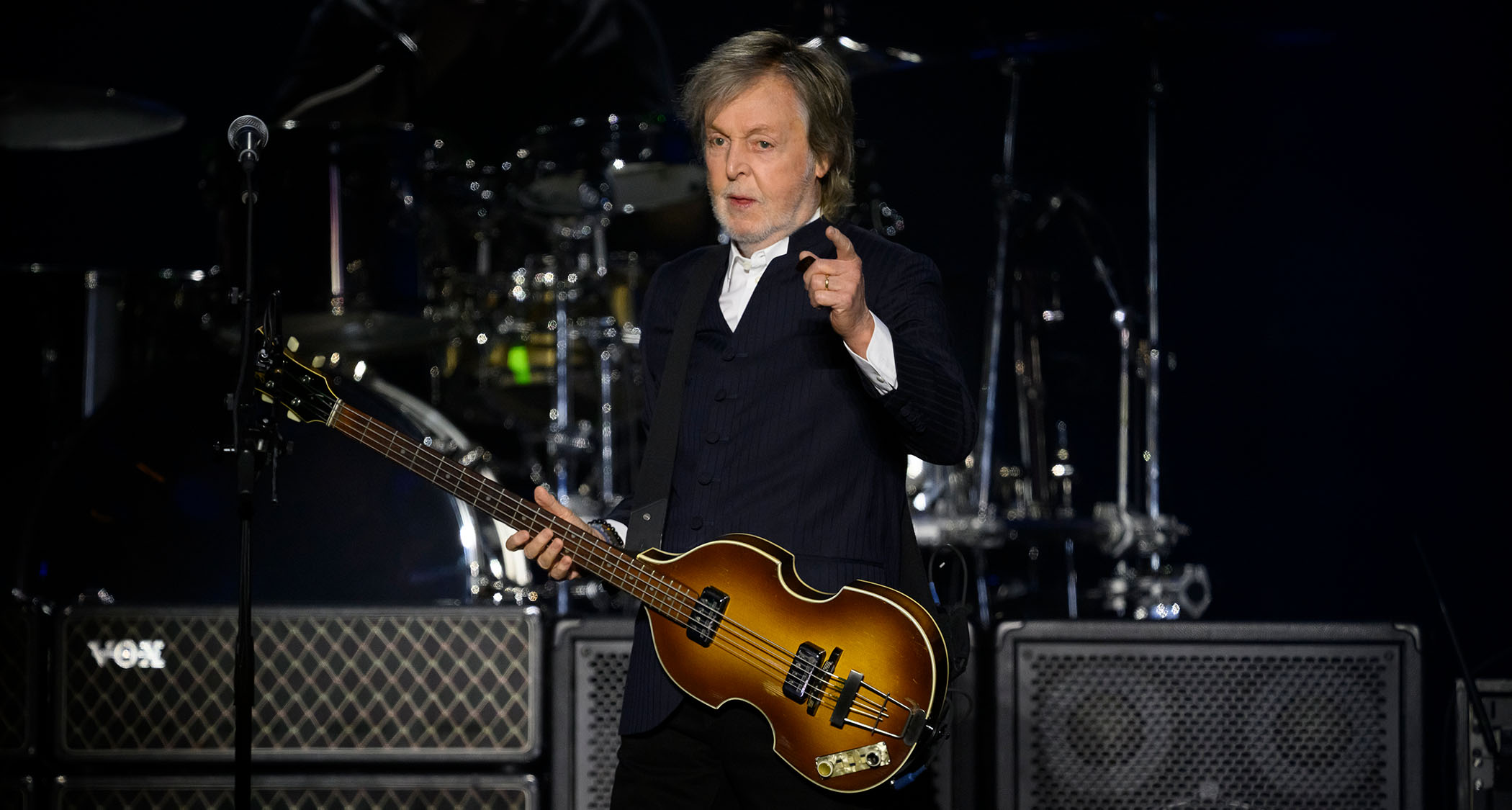“The only person to get a good sound out of that bass was Berry Oakley. It's got so many pickups!” Berry Oakley set the template for the Allman Brothers Band with a modified ’72 Jazz Bass, known as ‘The Tractor’
Oakley added a Hagstrom Bi-Sonic pickup to his 1972 Jazz Bass, giving him a total of three pickups and five control knobs

The tragically short life of Raymond Berry Oakley III was an incredibly innovative and influential one. He was born on 4 April, 1948 in Chicago and was a founder member of the Allman Brothers Band in 1969, wielding what became nicknamed the Tractor Bass – a modified 62 Fender Jazz Bass with a Hagstrom Guild pickup.
Oakley pulled the Hagstrom Bi-Sonic single-coil pickup from his Guild Starfire bass and dropped it into the re-routed neck-pickup position of his Jazz, and then re-installed the displaced neck pickup between the bridge and the bridge pickup to give him a total of three pickups and five control knobs: a volume and tone for the Hagstrom pickup, and two volumes and a tone for the Fender pickups.
When the New Haven Rock Press quizzed Oakley in December 1970 about his preference for Guild pickups, he said: “I used to have a Guild bass, and I liked the way it sounded, but I didn't like the bass, so I put them in there to see what'd happen. I just prefer the Fender; I like the long neck.”

The bass eventually ended up with Allman Brothers Band founding member Dickey Betts, who gave it to Oakley's son, Berry Duane Oakley. Berry Jr. used it briefly in his own band, Bloodline, before deciding it was too valuable to take on the road. He tapped Fender's Custom Shop to make a one-off copy, and loaned the original to the Allman Brothers Band Museum in Macon, Georgia.
Kentucky-based RS Guitarworks also duplicated The Tractor as a special order, using Lindy Fralin J-bass pickups and a Dark Star DS-3N, the latter based on the Hagstrom Bi-sonic pickup.
“I actually got a chance to play The Tractor a couple of times, and I couldn't get a good sound out of it at all,” said Oteil Burbridge, who played bass guitar in the Allman Brothers Band from 1997 to 2014.
“Then, totally by accident, it suddenly sounded like gold – as big as a house. I thought, 'Ok, I don't know what I did, but I'm going to leave it there.’ It's got so many pickups and knobs that I didn't know what to make of the thing at all!”
All the latest guitar news, interviews, lessons, reviews, deals and more, direct to your inbox!
Revisit Oakley’s isolated bass tone in the video below.
“I was with the band 17 years, but it only took me about a month to figure out what my favorite songs were, and a lot of that was down to Berry. Stand Back, Don't Keep Me Wonderin’ – two hard-driving classic basslines – Black-Hearted Woman, Leave My Blues at Home, Every Hungry Woman, Midnight Rider.. there are tons of them, and they're all beautifully crafted lines.
“My rule of thumb was that when Gregg is singing, I'd play the same as the recorded version as much as I can. But then we have these long jams, so there's plenty of time to explore new stuff. Also, we shouldn't forget how good Berry was at free exploration. He was an amazing player and should definitely get more credit that he does. He redefined rock bass at that time.”
“Berry reminds me a lot of Bob Marley's bassist, Aston ‘Family Man' Barrett, because he wasn't just trying to lock up with the bass drum. He wrote a lot of countermelodies, too. I learned that he was a guitar player, so I figured that influenced his approach to melody.”

Nick Wells was the Editor of Bass Guitar magazine from 2009 to 2011, before making strides into the world of Artist Relations with Sheldon Dingwall and Dingwall Guitars. He's also the producer of bass-centric documentaries, Walking the Changes and Beneath the Bassline, as well as Production Manager and Artist Liaison for ScottsBassLessons. In his free time, you'll find him jumping around his bedroom to Kool & The Gang while hammering the life out of his P-Bass.


